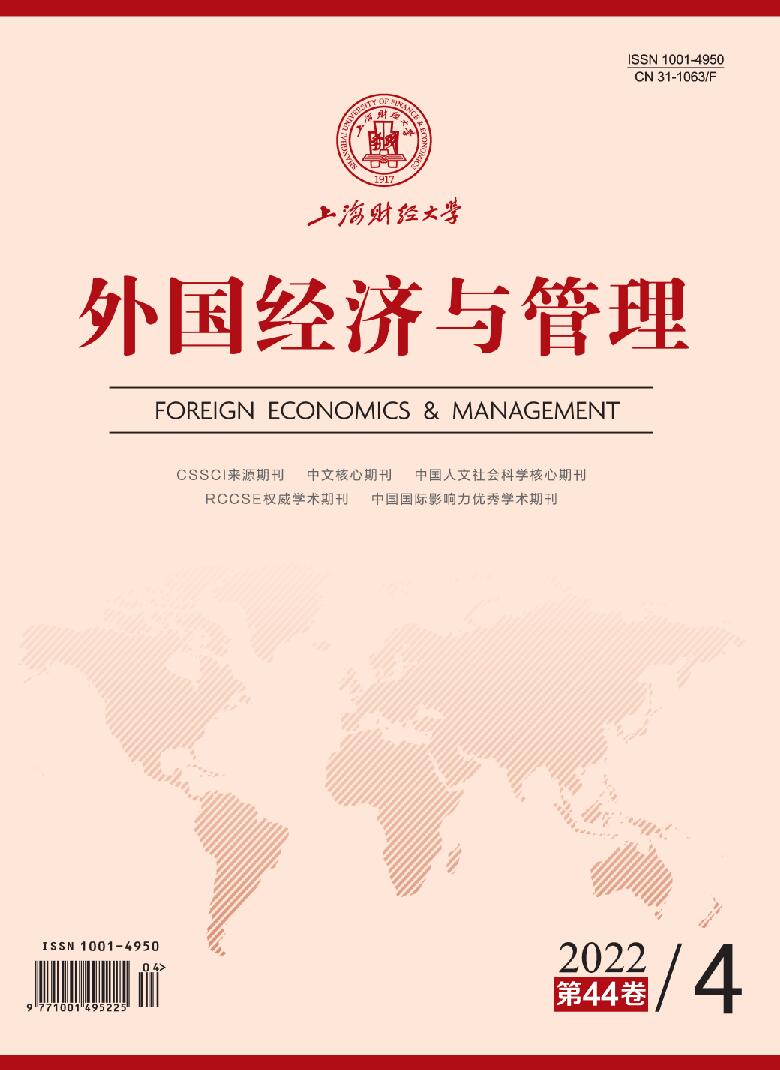[1] Dong X, Qin X, Chen C, et al. Time related research and future direction in organizational behavior field[J]. Advances in Psychological Science, 2021, 29(04):747-760.
[2] Qin X, Xue W, Chen C, et al. Why Do Leaders Conduct Justice Behavior? A Review and Future Research Directions[J]. Quarterly Journal of Management, 2019, 4(04):39-62.
[3] Brockner J, Wiesenfeld B M, Siegel P A, et al. Riding the fifth wave: Organizational justice as dependent variable[J]. Research in Organizational Behavior,2015, 35: 103-121.
[4] Colquitt J A, Long D M, Rodell J B, et al. Adding the "in" to justice: A qualitative and quantitative investigation of the differential effects of justice rule adherence and violation[J]. Journal of Applied Psychology,2015, 100(2): 278-297.
[5] Ferris D L, Spence J R, Brown D J, et al. Interpersonal injustice and workplace deviance: The role of esteem threat[J]. Journal of Management,2012, 38(6): 1788-1811.
[6] Guo J. The formation and change of overall justice perceptions: Consideration of time, events, and affect[D]. Champaign: University of Illinois at Urbana-Champaign, 2012: 1-20.
[7] Hausknecht J P, Sturman M C, Roberson Q M. Justice as a dynamic construct: Effects of individual trajectories on distal work outcomes[J]. Journal of Applied Psychology,2011, 96(4): 872-880.
[8] Holtz B C, Harold C M. Fair today, fair tomorrow? A longitudinal investigation of overall justice perceptions[J]. Journal of Applied Psychology,2009, 94(5): 1185-1199.
[9] Johnson R E, Lanaj K, Barnes C M. The good and bad of being fair: Effects of procedural and interpersonal justice behaviors on regulatory resources[J]. Journal of Applied Psychology,2014, 99(4): 635-650.
[10] Koopman J, Lin S H, Lennard A C, et al. My coworkers are treated more fairly than me! A self-regulatory perspective on justice social comparisons[J]. Academy of Management Journal,2020, 63(3): 857-880.
[11] Lilly J D, Virick M, Hadani M. The dynamic nature of justice: Influential effects of time and work outcomes on long-term perceptions of justice[J]. Social Justice Research,2010, 23(1): 37-59.
[12] Loi R, Yang J X, Diefendorff J M. Four-factor justice and daily job satisfaction: A multilevel investigation[J]. Journal of Applied Psychology,2009, 94(3): 770-781.
[13] Matta F K, Erol-Korkmaz H T, Johnson R E, et al. Significant work events and counterproductive work behavior: The role of fairness, emotions, and emotion regulation[J]. Journal of Organizational Behavior,2014, 35(7): 920-944.
[14] Matta F K, Sabey T B, Scott B A, et al. Not all fairness is created equal: A study of employee attributions of supervisor justice motives[J]. Journal of Applied Psychology,2020, 105(3): 274-293.
[15] Matta F K, Scott B A, Colquitt J A, et al. Is consistently unfair better than sporadically fair? An investigation of justice variability and stress[J]. Academy of Management Journal,2017, 60(2): 743-770.
[16] Matta F K, Scott B A, Guo Z, et al. Exchanging one uncertainty for another: Justice variability negates the benefits of justice[J]. Journal of Applied Psychology,2019, 105(1): 97-110.
[17] McClean S T, Barnes C M, Courtright S H, et al. Resetting the clock on dynamic leader behaviors: A conceptual integration and agenda for future research[J]. Academy of Management Annals,2019, 13(2): 479-508.
[18] Newton D W, LePine J A, Kim J K, et al. Taking engagement to task: The nature and functioning of task engagement across transitions[J]. Journal of Applied Psychology,2020, 105(1): 1-18.
[19] O’Reilly J, Aquino K, Skarlicki D P. The lives of others: Third parties' responses to others' injustice[J]. Journal of Applied Psychology,2016, 101(2): 171-189.
[20] Oc B, Bashshur M R, Moore C. Speaking truth to power: The effect of candid feedback on how individuals with power allocate resources[J]. Journal of Applied Psychology,2015, 100(2): 450-463.
[21] Park S, Sturman M C, Vanderpool C, et al. Only time will tell: The changing relationships between LMX, job performance, and justice[J]. Journal of Applied Psychology,2015, 100(3): 660-680.
[22] Qin X, Huang M P, Johnson R E, et al. The short-lived benefits of abusive supervisory behavior for actors: An investigation of recovery and work engagement[J]. Academy of Management Journal,2018, 61(5): 1951-1975.
[23] Qin X, Ren R, Zhang Z X, et al. Fairness heuristics and substitutability effects: Inferring the fairness of outcomes, procedures, and interpersonal treatment when employees lack clear information[J]. Journal of Applied Psychology,2015, 100(3): 749-766.
[24] Reb J, Goldman B M, Kray L J, et al. Different wrongs, different remedies? Reactions to organizational remedies after procedural and interactional injustice[J]. Personnel Psychology,2006, 59(1): 31-64.
[25] Rubenstein A L, Allen D G, Bosco F A. What's past (and present) is prologue: Interactions between justice levels and trajectories predicting behavioral reciprocity[J]. Journal of Management,2017, 45(4): 1569-1594.
[26] Rupp D E, Shapiro D L, Folger R, et al. A critical analysis of the conceptualization and measurement of organizational justice: Is it time for reassessment?[J]. Academy of Management Annals,2017, 11(2): 919-959.
[27] Scott B A, Garza A S, Conlon D E, et al. Why do managers act fairly in the first place? A daily investigation of "hot" and "cold" motives and discretion[J]. Academy of Management Journal,2014, 57(6): 1571-1591.
[28] Sherf E N, Venkataramani V, Gajendran R S. Too busy to be fair? The effect of workload and rewards on managers' justice rule adherence[J]. Academy of Management Journal,2019, 62(2): 469-502.
[29] Shipp A J, Cole M S. Time in individual-level organizational studies: What is it, how is it used, and why isn't it exploited more often?[J]. Annual Review of Organizational Psychology and Organizational Behavior,2015, 2: 237-260.
[30] Tsui A S, Jia L D. Calling for humanistic scholarship in China[J]. Management and Organization Review,2013, 9(1): 1-15.
[31] Wang Y R, Ford M T, Wang Y X, et al. Shifts and variability in daily interpersonal justice are associated with psychological detachment and affect at home[J]. Journal of Vocational Behavior,2019, 115: 103307.
[32] Yang J X, Diefendorff J M. The relations of daily counterproductive workplace behavior with emotions, situational antecedents, and personality moderators: A diary study in Hong Kong[J]. Personnel Psychology,2009, 62(2): 259-295.
[33] Zapata C P, Carton A M, Liu J T. When justice promotes injustice: Why minority leaders experience bias when they adhere to interpersonal justice rules[J]. Academy of Management Journal,2016, 59(4): 1150-1173.





 5661
5661  8156
8156

